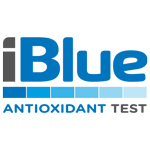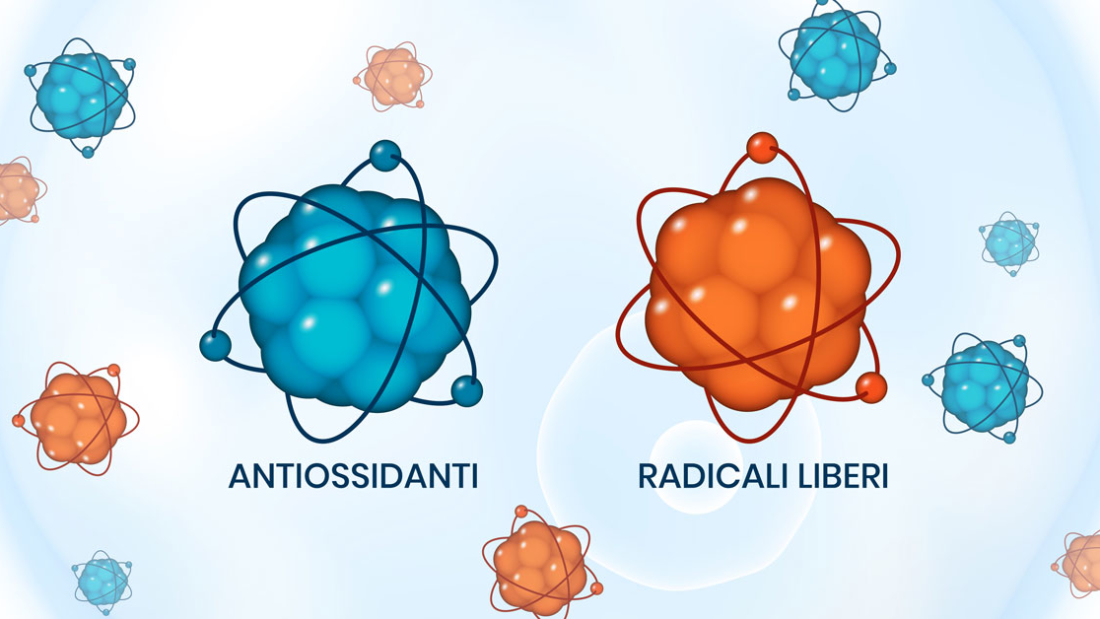Antioxidants are often talked about online, in TV and in the papers. Maybe you too are asking “Why are they so important? And why is it just as important to know their level?” Here’s everything you need to know.
Lets start with the basics. An “antioxidant” is any substance that can slow or combat the negative effects of free radicals which, if present in high quantities, can cause severe damage to our cells.
Fortunately, our bodies have a natural antioxidant system which balances the hyperproduction of these dangerous substances. If the “contest” between the free radicals and antioxidants ends in a draw, a sort of equilibrium is created, and the consequences are minimised.
However, factors like pollution, unhealthy lifestyles and poor diet can undermine the efficacy of the antioxidant mechanisms and boost the numbers of free radicals, generating a condition of oxidative stress, which can carry considerable risks. According to the experts, oxidative stress is implicated in cell ageing, weakening of the immune system and skin disorders, to name just a few examples.
In these circumstances, having a precise idea of our antioxidant level is useful, so we can keep it under control and, if necessary, boost it with specific products.
Endogenous and exogenous antioxidants
There are two types of antioxidants that defend us against oxidative stress, “disarm” free radicals and reduce any damage they cause.
Endogenous antioxidants are synthesised directly by the body, while exogenous antioxidants come from our diet. Without getting too technical, endogenous antioxidants consist of enzymes (superoxide dismutase, catalase, peroxidase), proteins, small molecules (glutathione, bilirubin, uric acid) and Coenzyme Q10, which together form a synergic barrier against the attack of free radicals. It’s also worth mentioning melatonin, whose scavenger activity means it can transform free radicals into non-toxic compounds.
There are hundreds of different exogenous antioxidants than can be consumed through our diet. They boost our endogenous detoxifying mechanisms (where these are inadequate) and are particularly abundant in fruit, vegetables, cereals and pulses. They mainly consist of vitamins (A, C, E), minerals (selenium, zinc, copper) and natural substances (polyphenols, flavonoids, lycopene, carotenoids).
Benefits of antioxidants
Together, endogenous and exogenous antioxidants have a fundamental role in maintaining our general state of health. They help protect us against a multitude of problems and the development of any disease associated with oxidative stress.
Antioxidants:
- can reinforce the immune system and help keep it active. This is especially important at times of greatest need, such as periods of intense stress, bacterial and viral infections, and age-related weakening of the body’s defences.
- can combat premature skin ageing and wrinkles caused by the deterioration of collagen and elastin fibres, itself associated with free radicals. They can also help make your hair stronger and shinier.
- can boost physical and mental performance. They help combat any loss of efficiency caused by a prolonged period of oxidative stress and can help fitness enthusiasts improve their performance and optimise their recovery times.
To sum up, antioxidants are essential substances and invaluable markers of our wellbeing, but they need to be present in our body at the right level. Not too little, but also not too much, as our cells need a certain amount of free radicals to carry out various biological functions. So what should you do to make sure you don’t get it wrong?
The first step is to measure your antioxidant level!
It’s now even easier with a home test: all you need is 5 minutes and a drop of saliva.
The results will help you identify the right strategy for you, enabling you to adjust your diet, lifestyle and use of antioxidant products.

